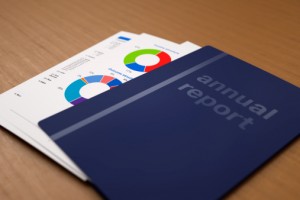Keeping Financial Records: The Basics
When it comes to financial records, it is important to know which records to keep.
 Throughout an individual’s lifetime he or she will accumulate a countless number of records. Medical records, tax records, dental records, and payment records are all examples of documents that keep record of things that we have done or spent in our lives. With all of these records accumulating over the years, it can be difficult to understand which records should be kept and how long these records should be kept for. Financial records are especially tricky because we generate so many of them and some are very important while others are much less useful.
Throughout an individual’s lifetime he or she will accumulate a countless number of records. Medical records, tax records, dental records, and payment records are all examples of documents that keep record of things that we have done or spent in our lives. With all of these records accumulating over the years, it can be difficult to understand which records should be kept and how long these records should be kept for. Financial records are especially tricky because we generate so many of them and some are very important while others are much less useful.
Sorting Through Your Financial Records
For nearly every financial transaction that you make in your lifetime there will be some type of receipt or record that details the transaction. The accumulation of all of these records can become quite overwhelming and it can be confusing to figure out which records should be kept and for how long they should be kept for.
Record type: Tax returns, tax deductions taken
Suggested length of time to keep records: 7 years
These tax records should be kept for a minimum of 7 years because the IRS has the right to audit your tax returns up until the end of this time period if they believe that you underreported your gross income by 25 percent or more. They can also audit your returns for up to 3 years if they believe you made any accidental mistakes in your filings. As a tax payer, you have up to 3 years to report any errors that you find in your return in order to receive a refund.
Record type: Retirement and savings plans statements
Suggested length of time to keep records: 1 year (quarterly statements), length of the policy (annual statements)
Whether you have a 401 (k) plan, a 403 (b) account, or any other type retirement plan you should make sure to keep all of your quarterly statements until you receive your annual summary. Check to make sure that the quarterly statements match up with the annual and once verified, you should shred the quarterlies. It is advised to keep all of your annual statements for the length of the policy to ensure that no irregularities arise.
Record type: IRA contributions
Suggested length of time to keep records: Forever
If you make taxed contributions to any type of IRA account, it is important to keep all records of these contributions so that you can prove you already paid taxes on this money. This way when it comes time to receive distributions from your IRA you will have no problem proving that you already paid taxes on this money.
Record type: Paycheck stubs
Suggested length of time to keep records: 1 year
Paycheck stubs should be stored away safely until the end of the year when you receive your annual W-2 form from your employer. Check to make sure your the information on your W-2 matches your checks stubs and if it does, you can then shred the stubs.
Record type: Bank Records
Suggested length of time to keep records: Forever
Every year you should go through your checks and other bank records and keep copies of any that are related to taxes, business costs, and mortgage payments. You could need any of these records down the line if your payments or receipts are ever called into question.
Lost Financial Records
The fact is, most people are creating and receiving new records almost daily. These records can be very difficult to keep track of and it can get confusing when trying to remember which are important to keep. If you have lost copies of important tax records, mortgage papers, or any other type of record let Certified Field Agent help you collect copies. Contact us today so our expert retrieval specialists can help you get the records you need.
